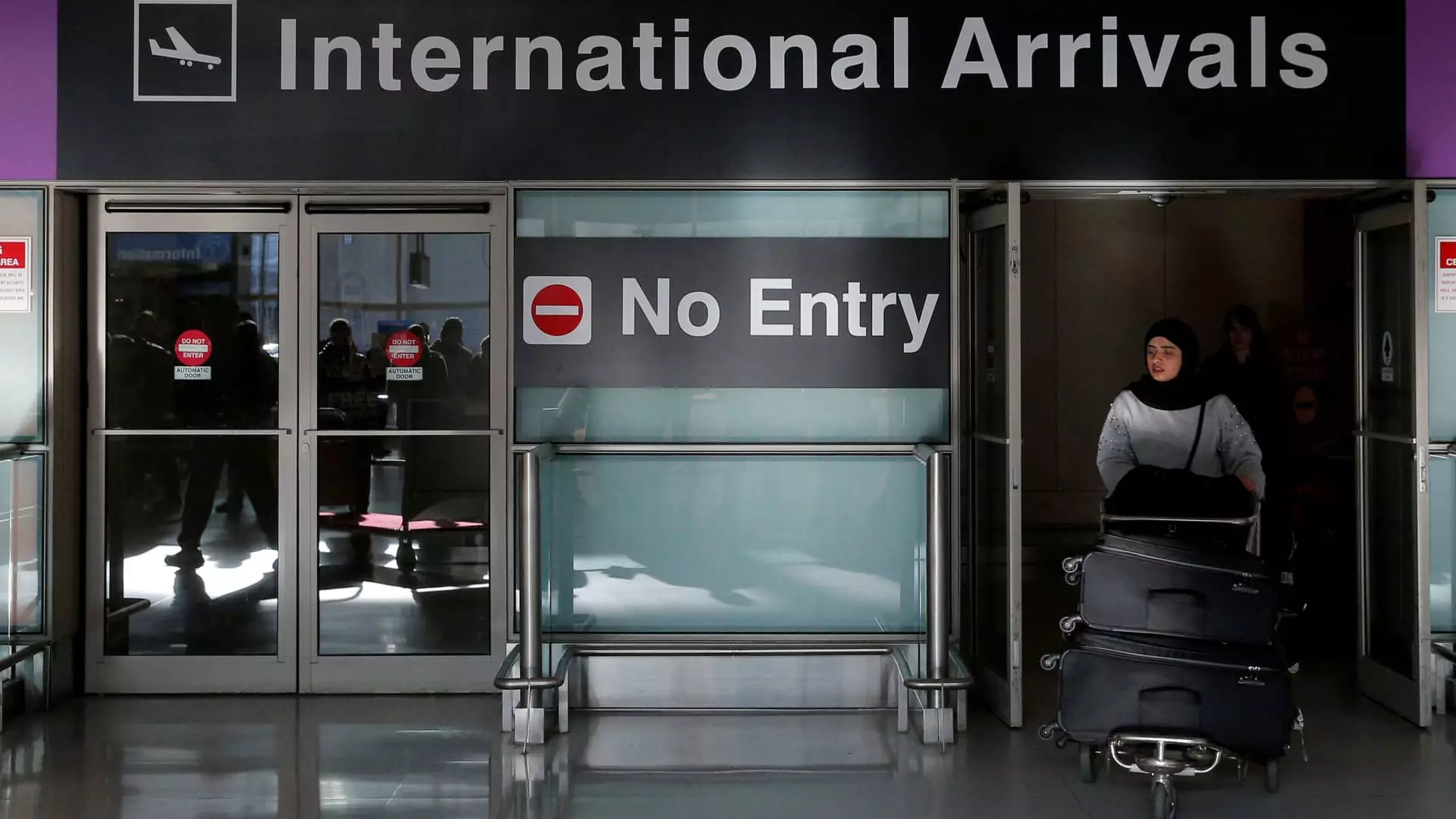The announcement of President Donald Trump’s latest travel ban has ignited a firestorm of criticism and concern regarding the true motivations behind his administration’s restrictive immigration policies. Ostensibly designed to protect national security by limiting entry from various predominantly African and Middle Eastern nations, the ban serves as a stark illustration of how fear and misinformation can distort the fabric of American values. By targeting specific countries and using the specter of terrorism as a rallying cry, this policy highlights a troubling trend towards xenophobia that is increasingly characterizing the political landscape in the United States.
At its core, Trump’s rationale rests on claims of terrorism-related and public safety risks posed by nationals from the specified countries. He has cited deficiencies in screening and vetting procedures as justification for this discriminatory practice. However, the arbitrary nature of the list — one that notoriously excludes nations like Egypt, even when its citizens are involved in high-profile criminal activities — raises fundamental questions about the policy’s legitimacy. Are we truly addressing significant threats, or merely fostering an atmosphere of hostility against entire communities?
The Human Impact: Voices from the Affected
As the ban takes effect, the real-life consequences for individuals, families, and communities cannot be overstated. Take, for instance, the perspective of Haitian-American Elvanise Louis-Juste, who poignantly expressed her heartache over the ban while waiting for a flight. Her experience underscores the fact that many people from these countries are not seeking to cause trouble; rather, they are fleeing from violence, instability, and dire economic conditions in search of safety and opportunity.
Louis-Juste encapsulates a broader sentiment; countless individuals are left feeling marginalized and isolated during a time of deep uncertainty. The travel ban does not merely affect those who cannot attain a visa — it reverberates through families and communities, fracturing relationships and disrupting lives. It is a stark reminder that behind every statistic, there are people with stories and aspirations, all seeking refuge in what is, or was supposed to be, a land of opportunity.
Legal Tightropes: Legislative Shortcomings and Court Challenges
Immigration experts have weighed in on the legal intricacies of this latest proclamation, suggesting that it appears more calculated than previous iterations. Unlike earlier efforts that faced immediate judicial backlash, this policy’s focus on the visa application process seems crafted to withstand legal scrutiny. Yet, this raises ethical questions: should national security policies be developed through a lens of exclusion and division? The pursuit of safety should not come at the expense of humanity, nor should it justify the marginalization of entire cultures based on the actions of a few.
Moreover, while the administration assures the public that previously issued visas remain valid, the reality of restricted entry and the ever-watchful eyes of immigration enforcement add layers of anxiety for individuals. Those who rely on family connections or humanitarian support face an uphill battle navigating the complex and uncertain terrain of U.S. immigration law. Families are forced to live in a state of limbo, unsure of whether they can reunite or if their loved ones can safely cross borders to join them.
The Role of Advocacy: A Call to Action
Reactions from advocacy groups have been swift and strong, condemning this ban as a harmful policy that sows division rather than fostering unity. Organizations that work tirelessly to support resettlement and assistance for refugees have underscored the disparity between professed American values and the harsh reality imposed by this ban. Abby Maxman from Oxfam America aptly captures the essence of the debate — this is not merely a matter of national security; it is a question of ethics, morality, and the kind of nation we aspire to be.
In a society built on principles of acceptance and refuge, the need to confront and dismantle such divisive policies becomes more urgent than ever. Public discourse should shift towards promoting inclusivity and understanding rather than stoking fears that lead to unjust exclusion. As citizens, we must challenge the narratives that seek to tear apart the communal bonds that tie us together and advocate for policies that reflect the diversity, resilience, and strength of all communities.
Ultimately, this travel ban serves as a call to action. It emphasizes the significance of empathy in policymaking and the necessity for change against regressive stances. As advocates for a brighter future, we must remember that immigrants contribute to the tapestry of American life, enriching our culture and economy in immeasurable ways. The dialogue surrounding policies like these should focus not only on security but on human dignity, compassion, and the enduring promise of opportunity for all.


Leave a Reply